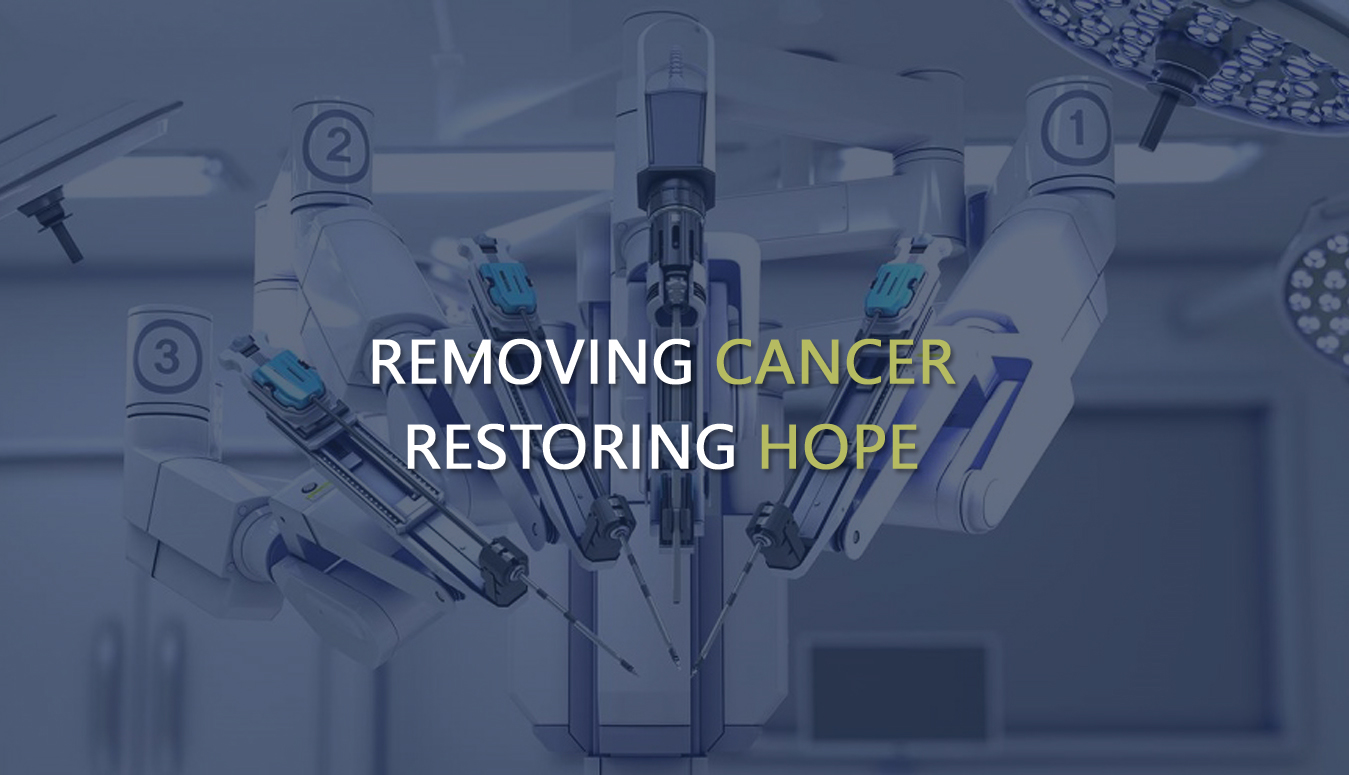Oncosurgical Procedures: Salivary Gland Cancer - Neck Dissection
Introduction to Salivary Gland Cancer
Salivary gland cancer, though relatively rare, represents a significant challenge in head and neck oncology. These malignancies can originate in any of the salivary glands, including the parotid, submandibular, and sublingual glands, as well as the minor salivary glands spread throughout the mucosa of the mouth and throat. Among the most effective treatments for advanced or metastatic salivary gland cancer is neck dissection, a surgical procedure crucial for managing lymph node involvement.
Dr. Yash Chaddha, a renowned head and neck oncosurgeon, specializes in surgical oncology and robotics at NHMMI Narayana Superspeciality Hospital in Raipur, Chhattisgarh. With a commitment to precision and patient care, Dr. Chaddha brings expertise and compassion to every case, ensuring the best possible outcomes for his patients.
Understanding Neck Dissection
Neck dissection is a surgical procedure aimed at removing lymph nodes and surrounding tissue to manage and prevent the spread of cancer. In salivary gland cancer, this procedure is often necessary when there is evidence of cancer spread to the lymphatic system. The goal is to remove cancerous nodes and reduce the risk of recurrence.
There are different types of neck dissection, categorized based on the extent of tissue removal:
- Selective Neck Dissection (SND): Only specific lymph node groups are removed.
- Modified Radical Neck Dissection (MRND): Most lymph nodes on one side of the neck are removed, but some non-lymphatic structures are preserved.
- Radical Neck Dissection (RND): The most extensive type, involving the removal of nearly all lymph nodes on one side, along with certain muscles, nerves, and veins.
The Surgical Procedure
Neck dissection surgery is performed under general anesthesia. The type of dissection chosen depends on the location and extent of cancer spread, which is determined through diagnostic imaging and clinical evaluation. Dr. Yash Chaddha uses state-of-the-art robotic technology to enhance precision and minimize tissue damage, which results in better functional and aesthetic outcomes for patients.
The procedure begins with an incision along a natural skin crease in the neck to minimize visible scarring. Dr. Chaddha then carefully identifies and removes the affected lymph nodes and any other necessary tissues. Throughout the surgery, special attention is given to preserving vital structures such as nerves, blood vessels, and muscles to maintain neck function and appearance.
Post-Operative Care and Recovery
After neck dissection surgery, patients are closely monitored in the hospital for a few days. Drains may be placed to remove excess fluids, and pain management is provided to ensure patient comfort. The length of hospital stay depends on the extent of the surgery and the patient's overall health.
Recovery at home includes wound care, managing any surgical drains, and gradual return to normal activities. Patients are advised to avoid strenuous activities for several weeks to allow proper healing. Follow-up appointments with Dr. Chaddha are essential to monitor recovery and address any concerns.
Risks and Complications
As with any major surgery, neck dissection carries certain risks and potential complications. These may include:
- Infection at the surgical site
- Bleeding or hematoma
- Nerve damage, leading to issues such as shoulder weakness or facial paralysis
- Lymphedema (swelling due to lymph fluid buildup)
- Scarring
Dr. Yash Chaddha and his dedicated team take every precaution to minimize these risks. Pre-operative planning, advanced surgical techniques, and comprehensive post-operative care all contribute to safer outcomes and quicker recovery times.
The Role of a Multidisciplinary Team
Treating salivary gland cancer effectively requires a multidisciplinary approach. Dr. Yash Chaddha collaborates with a team of specialists, including medical oncologists, radiation oncologists, radiologists, pathologists, and speech therapists, to develop a personalized treatment plan for each patient.
This collaborative approach ensures that all aspects of the patient's health are considered, and the most effective treatments are utilized. Whether it involves chemotherapy, radiation therapy, or additional surgical interventions, the goal is to provide holistic and comprehensive care.
Patient Stories and Testimonials
Many patients have benefited from Dr. Yash Chaddha's expertise in managing salivary gland cancer through neck dissection. Testimonials from former patients highlight his skill, compassion, and dedication to their well-being. These stories serve as a testament to the life-changing impact of advanced oncosurgical procedures and the importance of choosing an experienced surgeon.
Conclusion
Neck dissection is a critical component in the management of salivary gland cancer, providing hope and improved outcomes for patients facing this challenging diagnosis. Dr. Yash Chaddha's expertise in head and neck oncology, combined with his proficiency in robotic surgery, ensures that patients receive the highest standard of care.
For those seeking specialized treatment, Dr. Chaddha offers consultations at NHMMI Narayana Superspeciality Hospital in Raipur, Chhattisgarh, and at Metro Balaji Hospital in Raigarh. He is available for OPD on the 1st and 3rd Saturday of every month, providing accessible and expert care to patients across the region.
To schedule an appointment or learn more about the comprehensive services offered by Dr. Yash Chaddha, please contact NHMMI Narayana Superspeciality Hospital or Metro Balaji Hospital. Taking the first step towards specialized care can make all the difference in the journey towards recovery and wellness.
 help
help


